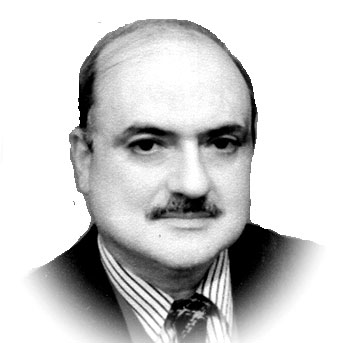Money-launderers to the cleaners !
SINCE the change in government in this blessed land, money-laundering has prominent mention among the financial buzz-words in vogue.
What is not quite clear, though, is what this phrase is being taken to connote in the Land of the Pure, and by whom.
Definitions of phrases such as these are subjective rather than objective. Above all, we as a nation do not appear to be clear which side our national bread is buttered on.
What is needed is a good, hard look over the shoulder. So here goes. Several years ago, British newspapers were abuzz with the glad tidings that Her Majesty’s Customs was ready to unveil, what was termed as a ‘secret weapon against money-laundering’.
The ‘weapon’ when presented to the expectant public turned out to be a pack of sniffing dogs that had been specially trained to sniff out currency concealed in suitcases of international travelers.
So far so good! But what riveted one’s attention was the text that followed.
It was proudly revealed that the dogs had already been stationed at “all outward terminals” at Heathrow and Gatwick airports where they were to sniff out hidden currency in the baggage of passengers departing from the United Kingdom.
There was nary a mention of the inbound terminals and the baggage of passengers entering the country.
Apparently, the concern of HM Customs was restricted strictly to the currency leaving the country.
It was thus that the fundamental fact of life was brought home to one that, in so far as the developed world was concerned, money-laundering constituted only the funds that were exiting their shores.
The advent of incoming money, on the other hand, was, instead, to be seen as a natural ‘inflow of capital’.
Whereas any one indulging in the former was to be apprehended as committing a serious misdemeanor, a blind eye would be turned at those indulging in the latter practice.
This should provide wholesome food for thought for those who exhibit legitimate concern about the downward trend of the economic indicators of the Land of the Pure.
On another note, much has been said and written about the curse of corruption in this hapless land.
Very little attention is paid, however, to the damaging fact that bulk of the yield of this curse is spirited out of the country to be deposited or invested in the developed world.
Let us face it; corruption per se may not prove all that harmful for the national economy, provided the ill-gotten wealth is reinvested within the country.
The bane of our economy is that the country is being constantly bled white by our corrupt elites due mainly to the illegal (?) out-flow of its monetary resources.
The hard-earned home remittances of our patriotic workers abroad are more than neutralized by the unsavory practices of the corrupt elites at home.
One uses the word ‘worker’ advisedly because our white collar dual passport holders abroad hardly ever remit even part of their earnings to the home country, but prefer to hold on to the funds or invest them abroad.
The country, thus, suffers twice over – once due to the brain drain and secondly because of shortage of remittances.
It must also be brought on record that many of our highly qualified professionals working abroad are ones who were recipients of lucrative scholarships provided by our government agencies.
Before they avail of the scholarships, they are required to sign an undertaking to return to the country and serve for at least a period of time. Hardly anyone honors these undertakings.
Since the scholarships are reserved only for the off-spring of those who matter or their cronies, the recipients have often been allowed to break the undertakings with impunity.
One wonders if any of the NGOs that are sprouting in the country like wild mushrooms would spare some quality time to prepare a study of this debilitating phenomenon.
It would, thereby, unravel a rotten and vicious cycle eating into the very vitals of the country.
But would any NGO deign to go near the can of worms? But that, as they say, is another story.
The much heralded New International Economic Order is tacitly encouraging practices that result in a net transfer of resources from the developing world to the developed economies of the First World.
The economy of this blessed land is near collapse partly due to such unsavory practices.
The question that arises begging for an answer is: can anything be done about it? Unless something is done to stench the outflow of the country’s life-blood and done quickly enough, the economic future looks bleak indeed.
Instead of drowning the country in a flood of statistics as is their wont, our blessed planners would be well advised to devise a cogent strategy to remedy this situation.
For one thing, it just will not do to invite foreign companies to sell consumer products in this impoverished land and repatriate their profits, as at present.
This is particularly true of foreign companies dealing in beverages who have been earning huge profits over the years without bothering to plough even a small percentage of the cash into such projects as provision of clean drinking water in deprived areas, for instance.
Instead of bending over backwards to help out the developed countries in their anti-money laundering campaigns, we are in dire need of developing our own national narrative.
National interest is, or at least should be, our first priority.
The pity is that even to talk about such matters is akin to hitting one’s head against the wall; or worse!
— The writer is a former Ambassador and former Assistant Secretary General of OIC.










